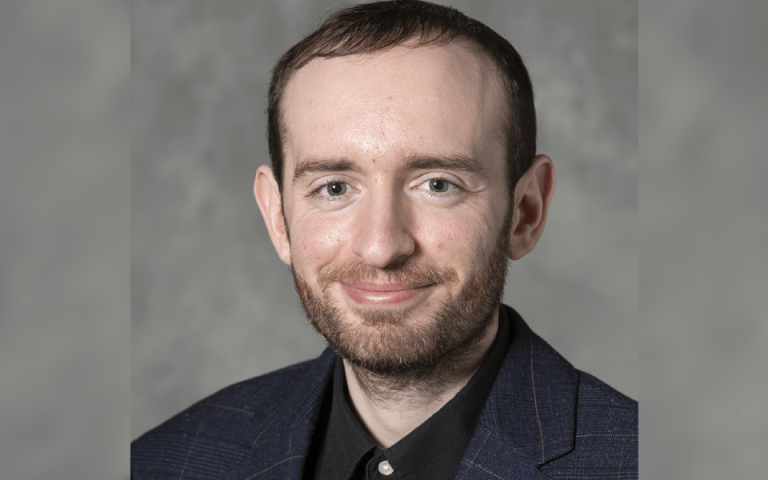Chris Gallagher
Chris Gallagher is the Faculty IT Support Specialist for Mathematical and Physical Sciences.

1 March 2024
When did you take up this position? What was your position beforehand?
I joined UCL at the start of February 2023 after working for the University of Greenwich for 10 years within the IT and Library Services department as part of its technical support team. Over the years this has involved working on software licensing, procurement tendering, software development, project management as well as general day-to-day technical support for equipment such as personal computing devices, audio visual technology and networking.
Tell us about your work at UCL - how do you spend your days, and what makes your role different to similar positions elsewhere?
I’m involved in a variety of projects across the MAPS Faculty where we are looking to identify and assist with making improvements to the service in collaboration with each of the stakeholders. As part of the wider UCL Faculty IT structure, I also work with the Specialist Applications product team where we investigate and provide solutions for specialist software applications that require specialist development to enable their use by the wider UCL community.
Outside of projects, I directly support departments through face-to-face, Teams and email interactions providing either a direct resolution to the issue or assisting with raising the request via the appropriate channels. Further to this I also carry out procurement operations to assist departments with purchasing the right equipment for the given task and ensuring value for money.
I have the option to work on a variety of projects spanning across departments and the wider UCL community and engage in organisational change pieces. This generally wouldn’t fall under a role such as this elsewhere and it would be restricted to a more reactive role of dealing with issues as they arise, as opposed to here at UCL where being proactive is encouraged from all corners. It provides a great opportunity to contribute back to the UCL community and develop the range of skills you have.
What are some of your favourite things about working at UCL? How have you found it different to previous jobs?
The size of the UCL community has meant being able to meet so many people from all walks of life and getting to know them. This has brought about the opportunities to hear different ideas and viewpoints and being able to create holistic solutions to requests that take those differences into consideration.
Seeing the impact of the teaching and research we are supporting on the wider world in solving its many issues, and how it is shaping lives is one of my favourite things. Also being able to provide new tools to teams to help reduce the complexity of tasks and providing our community with solutions to problems they are encountering with technology.
Can you tell us about any projects you’re currently working on?
I’m currently working on the Mac@UCL project to improve and expand upon the current managed Mac platform offering to bring the Apple family of computing devices into a centrally supported framework. This will ensure devices are protected, the data is securely stored, and they can be supported by the wider IT support network at UCL. This is provided through our new built-in remote assistance tools and the ability to remotely deploy software to the device without needing to physically get hold of it and making applications available via a self-service function.
This is part of our efforts to ensure those using Apple devices are given the same level of support and security as those using the managed Windows devices that are currently available.
Have you always been based in London? If not, when did you move here, and how did you find adapting to living in London?
My parents moved here from the North of England and for most of my life I’ve lived out in county Kent where we sit along the edge of Greater London. The area has the excellent benefit of having easy access to all the venues and events in London while being in the borderline between suburbia and the countryside with various woodlands and parks being in walking distance.
Working around the various rail strikes has taken some adjustment but the option to work remotely has helped to mitigate them.
Finally, tell us about your non-work life. Do you have any hobbies, or favourite places to go in London?
When I have free time, I like to engage in a mixture of drawing digital artwork, writing stories, and developing code for modifying video games and prototyping new game ideas. Some of my favourite places to go to in London are the Natural History and Science museums and having visited Japan several years ago and loving its culture I enjoy visiting Forbidden Planet where various new releases of books and Manga (comics) from Japan are available.
Seeing new theatre shows in London is a favourite on weekends and is always a great opportunity to meet up with friends.
 Close
Close

